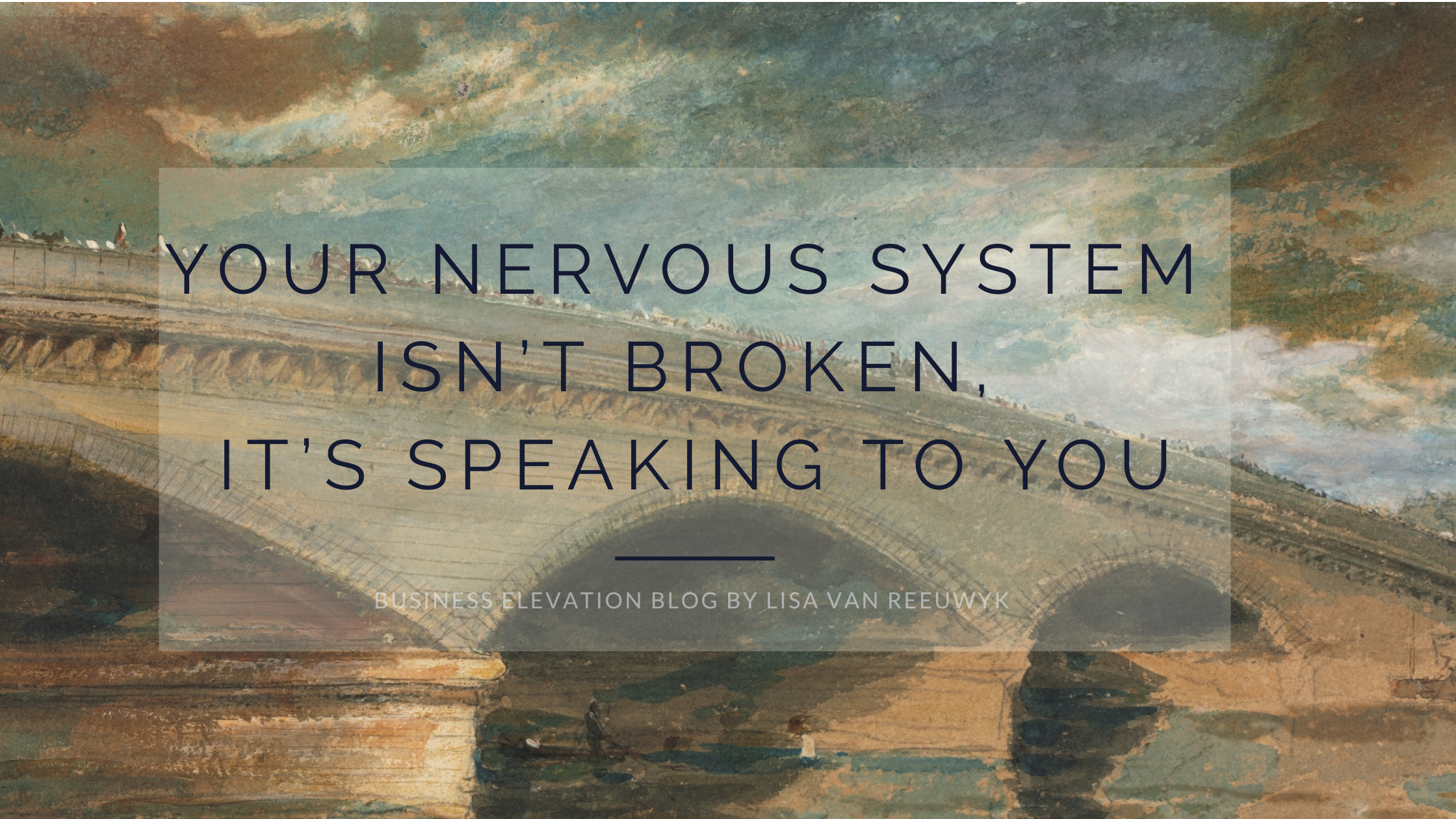
Why You Should You Care About Your Nervous System as a Business Owner?
Think of your nervous system as your body’s internal scanning system—constantly assessing safety and threat, whether you’re aware of it or not. It’s a complex network of nerves and cells that carry messages between your brain, spinal cord, and the rest of your body. At its core, it’s responsible for how we experience and respond to stress, joy, connection, and everything in between.
As business owners, especially those of us juggling leadership, caregiving, and a deeply people-first approach, understanding how our nervous system functions isn’t just a wellness topic. It’s a leadership tool.
The Vagus Nerve & Polyvagal Theory (In Simple Terms)
At the heart of our nervous system regulation is the Vagus Nerve, a critical part of the autonomic nervous system. It helps calm the body after a stress response and determines how quickly we can return to a regulated state after a perceived threat.
Enter Polyvagal Theory, developed by Dr. Stephen Porges. It shifts the definition of trauma from being just about the event, to being about the impact, specifically, how being overwhelmed and under-supported shapes the way our nervous system responds to the world.
If you’ve grown up with safe, emotionally supportive relationships, your system may regulate itself more easily. But for many of us, present company included, chronic stress, dysfunctional relationships, and a lack of emotional safety create a loop of hyper- or hypo-arousal. When this happens, we’re more prone to extremes like over functioning or shutting down.
Freeze, Flight, Fawn or Fight: Recognizing Your Patterns
When overwhelmed, some of us feel compelled to act. This could be cleaning, fixing, planning, people pleasing (fawning) or moving in any way to stop yourself from the thoughts we have in stillness. Others collapse into stillness or dissociation, this can look like retreating to bed, numbing with food or alcohol, or struggling to engage in daily activities. These are all nervous system responses, none of which make you broken or weak. Rather, they’re your body’s attempt to survive.
Personally, depending on my level of stress, I usually swing between freeze or fawn. When I’m in “tending to others needs mode,” I lean on my training as a Certified Mindfulness Facilitator. I ground myself by simply noticing my body without trying to change anything. I slow everything down with simple tasks like washing my hands with care, breathing deeply with extended exhales, even wiping down the kitchen counters can feel especially regulating.
When I sense overwhelm creeping in, I’ll leave a voice memo for a friend or step outside for a short walk in nature. These little moments help bring my Vagus Nerve back online and restore balance through connection to people or nature.
Why This Matters in Your Wisdom Era
If you’re entering your wisdom era, you might be carrying more stress than you realize. Not just the pressure of business or a busy household, but deeper, subtler stressors like the kids leaving home, aging parents, shifting identities, or waking up to the realization that you’ve been playing by rules that weren’t made for you.
These moments can feel like an existential unraveling and they require a new level of nervous system care.
Creating Supportive Habits That Actually Stick
After 16 years in business and coaching hundreds of clients, I’ve seen what works when it comes to habit-building. A few truths:
-
You have to want it. Otherwise, it’ll get pushed aside by urgent deadlines, to-do lists and established nervous system responses.
-
Motivation ebbs and flows especially on tough days.
-
Your nervous system doesn’t love “new.” Even positive change can feel threatening so be patient with the uncomfortable feelings of the new.
To create lasting change, start small and tack the new habit onto an existing one. I love the “Tiny Habits” method:
After I [do existing habit], I will [do new habit].
And celebrate. Even the tiniest step deserves acknowledgment, it wires your brain for success. Like the saying goes, neurons that fire together, wire together. Learn more about lasting habits on my blog here.
My Go-To Nervous System Supports
Here are a few things I personally return to when life feels like a lot:
-
Weekly schedule check-ins: I assess if I have enough space to show up well for what’s ahead. Presence needs room.
-
Micro-transitions: I take a mindful pause between meetings or tasks to breathe and re-center.
-
Written reminders: I revisit notes I’ve written to myself (or received from others). They help anchor me back to my heart and remind me I can handle the hard stuff.
-
Brain dumps: I set a timer and write down everything swirling in my mind. Then I review, prioritize, and triage.
-
Community: Surrounding myself with people who get it is key. Sometimes it’s a trusted friend. Other times it’s a values-aligned membership. Whatever it means to you, cherish it.Either way, knowing when to ask, “Can you just listen?” is gold.
Final Thoughts
If your nervous system feels frayed right now—you’re not alone. The world is intense. Life is full. Business can be beautiful and brutal. But you can cultivate a relationship with your nervous system that helps you lead, love, and live with more grace.
We’re not meant to regulate alone. We’re wired for connection, gentleness, and community. And we access all of that not through pushing harder, but by honoring what our body is asking for. To listening with compassion to our inner guidance system. If you’re curious about accessing coaching to support your growth, expansion and alignment, schedule a free discovery call here to explore possibilities.
Keep going, keep growing,






